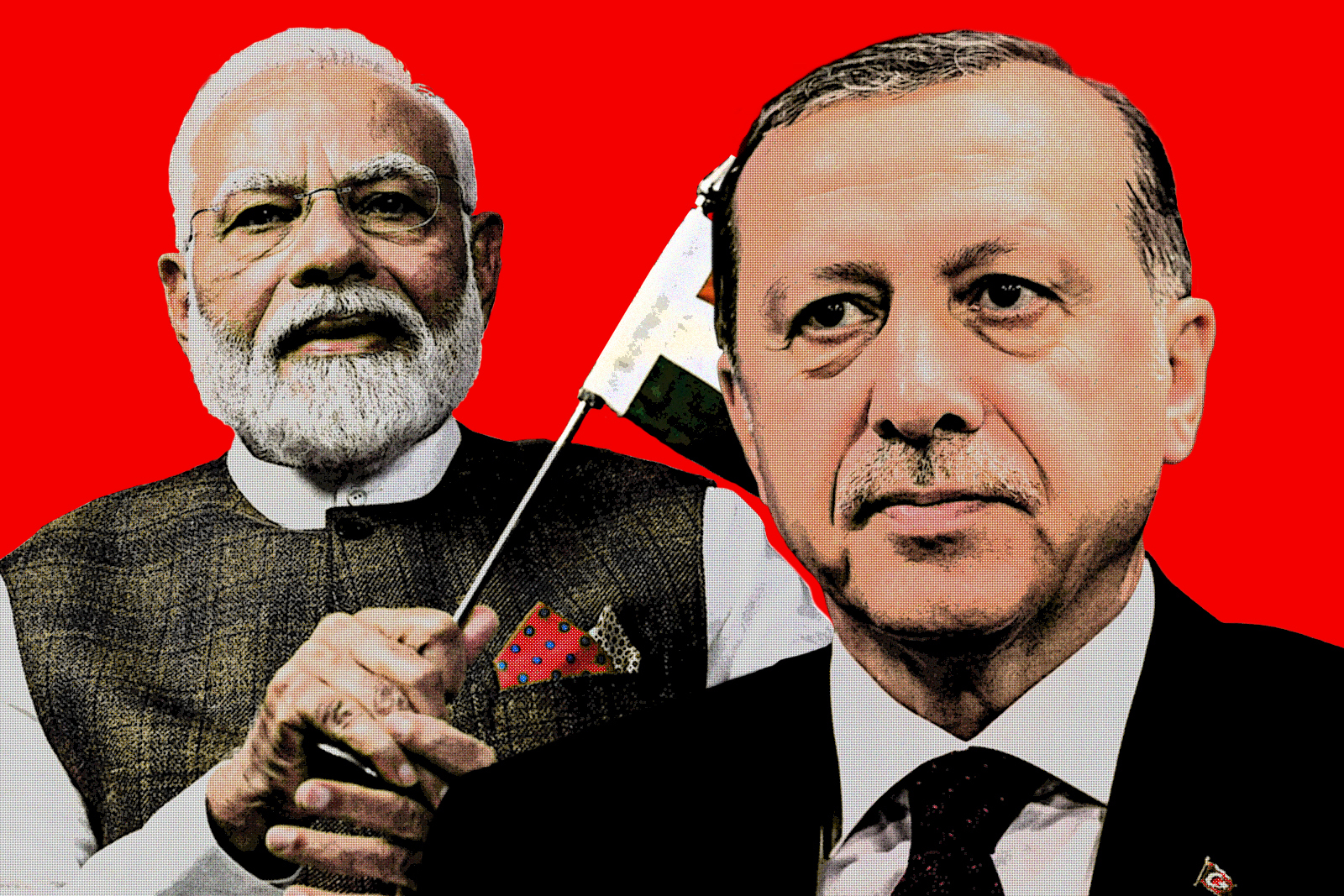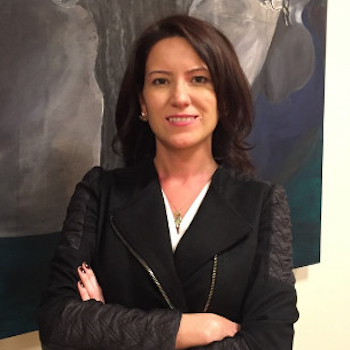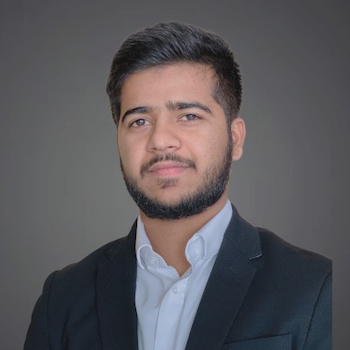
Chasing Votes in the Gulf: Modi and Erdogan Turn to Campaigning Abroad
In the complex world of politics, the international moves of leaders often extend beyond the realm of foreign policy, seeping into the domestic arena. This phenomenon is often embodied in the foreign policies of two strongmen: Indian Prime Minister Narendra Modi and Turkish President Recep Tayyip Erdoğan. As both men prepare for elections that will determine the future of their countries, the two leaders have recently turned their gaze toward the Gulf as a crucible of economic and political power, through high-level diplomatic visits.
While the two leaders inked deals worth billions of dollars during their visits, Modi’s visit was also marked by the inauguration of the Bochasanwasi Akshar Purushottam Swaminarayan Sanstha (BAPS) Hindu temple in Abu Dhabi, as well as the release of eight Indian ex-navy personnel who had been sentenced to death by Qatar. These visits are not mere state affairs, but carefully orchestrated performances aimed at bolstering their electoral appeal back home.
Hot money and investments
For Modi and Erdoğan, ensuring economic benefits from the Gulf is not just a matter of foreign policy but a clever strategy with a direct impact on the domestic economy and electoral gains. Modi’s visit to Qatar following his trip to the UAE included the signing of a liquefied natural gas (LNG) deal between India’s Petronet and Qatar’s QatarEnergy, which entails Qatar supplying India with 7.5 million tonnes of LNG annually for the next 20 years.
The Gulf is also a crucial source of remittances for India. In 2022, the UAE provided 18% of India’s total remittances ($90 billion), ranking second after the United States. Saudi Arabia was sixth, contributing 5.1%, while Kuwait, Oman, and Qatar provided 2.4%, 1.6%, and 1.5% respectively. Remittances facilitate the maintenance of family connections, and poverty alleviation, increase investments in small-scale enterprises, boost expenditure on healthcare and education, and augment human and financial capital within India.
In recent years, the Gulf has become a significant source of investment for Turkey as well with its bilateral trade with Gulf Cooperation Council (GCC) countries rising from $2.1 billion in 2002 to $22.7 billion in 2022. Erdoğan’s UAE visit in February as the guest of honor at the World Government Summit, accompanied by several cabinet ministers, witnessed the signing of multiple deals on trade, energy, and technology.
His previous visit to the country as part of his renowned Gulf tour in 2023, where he visited Saudi Arabia, the UAE, and Qatar with more than 200 business executives and bureaucrats, saw the inking of deals worth $50 billion. The visit included the establishment of a high-level strategic council with the UAE, $11.5 billion in financial aid from the UAE to support its foreign exchange reserves and economy, and Saudi Arabia depositing $5 billion into Turkey’s central bank.
The global balance of power and the Gulf
As the two countries with the fastest growing diplomatic networks, the Gulf policies of Turkey and India reflect their tendency to take on more active roles, amidst declining U.S. interest in the region. With the United States altering its approach in the Middle East to focus more on global challenges like China and Russia, regional powers have looked to strengthen their strategic partnerships and reduce reliance on U.S. support. For instance, India has strategically diversified its energy procurement by reducing its dependence on Russian imports and turning towards reliable Gulf allies like the UAE and Qatar.
Another key example of India’s activism is the establishment of the India-Middle East-Europe Economic Corridor (IMEC), which signifies a calculated response to China’s Belt and Road Initiative (BRI). This trade corridor creates a route from India to Europe, passing through the UAE, Saudi Arabia, Jordan, Israel, and Greece providing venues for Indian goods to further penetrate markets in the Middle East. The UAE plays a crucial role in this route as Jebel Ali, one of the largest ports in Asia, serves as the major transit hub for Indian goods bound for Europe.
Talks for a rival deal are underway between Turkey and the UAE, promoted as one of the mega projects of Erdoğan’s Justice and Development Party (AKP) vis-a-vis the upcoming elections with an estimated $5.8 billion investment. This initiative was developed as a strategic countermeasure to the IMEC, from which Turkey was excluded. This marks the second instance of Turkey being excluded from a major regional project, the first being its marginalization from the East-Med Forum.
Erdogan’s visit to the UAE was swiftly succeeded by a landmark trip to Egypt, marking his first visit to the country in over a decade. The visit signals a notable departure from his previous criticism of President Sisi and support for the Muslim Brotherhood. The timing of this visit, just ahead of the elections, carries a poignant message to Erdogan’s supporters: While Turkey is boosting its economic ties with regional powers, it is also realigning itself with the West and Western allies in the region including Egypt, the UAE, and Saudi Arabia.
India’s diplomatic outreach to the Gulf region is part of a broader strategy to boost its influence, counter China’s presence, and position itself as a key player in the Global South. This engagement forms a crucial part of India’s ‘Look West’ and ‘Extended Neighbourhood’ policies, aimed at attracting investments for economic development and fostering stronger partnerships with Gulf nations.
The campaign diplomacies conducted by Modi in the Gulf signify yet another emerging reality, demonstrating how the Gulf has transformed into a global strategic arena for emerging powers to exert their influence in global politics.
Victories abroad, challenges at home
Modi and Erdoğan’s activism abroad is carefully crafted to resonate with particular audiences, portraying them as strongmen. The fact that Modi’s UAE visit was marked with the inauguration of the BAPS temple, rather than the various agreements that had been signed, was no coincidence. By inaugurating the BAPS just before the elections, he reinforced his portrayal as a staunch Hindu nationalist revitalizing India’s heritage globally.
While Modi and his supporters have lauded the UAE for its promotion of religious pluralism and tolerance, the current political landscape in India reflects a contrasting scenario. Since the ruling right-wing Bharatiya Janata Party came to power in 2014, India’s domestic politics has become extremely polarized, with opposition parties accusing the BJP of fuelling anti-Muslim hate crimes. The recent implementation of the Citizenship Amendment Act of 2019, which grants expedited naturalization to non-Muslims who fled to India from Afghanistan, Bangladesh, and Pakistan before December 31, 2014, while excluding Muslims, a majority population in all three countries, is an extension of this policy of polarization.
For decades, Erdoğan has capitalized on a policy of polarization for political gain, which has significantly divided Turkey along several lines. The policy of seeking short-term electoral gains came at a price for Erdoğan, as it contributed to Turkey’s economic crisis by fostering instability, hindering effective governance, eroding confidence in institutions, and diverting attention and resources away from addressing crucial issues. As such, his Gulf incursions are part of his broader efforts to shadow domestic challenges by bringing in victories from abroad.
The Gulf, with its considerable economic clout and strategic location, offers fertile ground for Modi and Erdoğan to sculpt images of themselves as visionary leaders capable of elevating their countries on the world stage. Their visits to this region, rich in both resources and diplomatic opportunities, transcend mere statecraft, representing calculated moves designed to bolster electoral gains.


